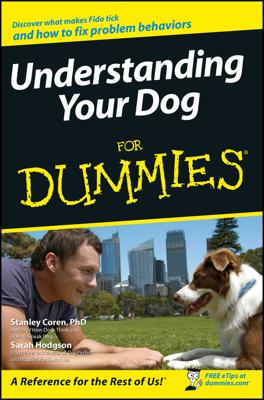Puppy foods must contain six essential ingredients: protein, fat, carbohydrates, vitamins, minerals, and water. These elements make up the minimum daily requirement, which is determined by the Association of American Feed Control Officials (AAFCO).
Even though the requirement is set by law, each company can choose whatever ingredients it wants to fill that requirement. Some puppy foods include soy to meet the protein requirement, whereas other foods include meat or other animal protein. For dogs, animal protein beats soy hands down.
Types of puppy foods available
The many brands of puppy food on the market all basically fall into three groupings:
-
Pick-me-up-anywhere brands: You can find these brand names just about anywhere. A segment on 60 Minutes described how these widely commercialized food companies get their meats: They select from the Grade 4-D categories — meaning animals that are dead, dying, diseased, or decaying. Much of the fat in these brands is indigestible, requiring greater amounts to meet daily nutritional requirements, which requires your puppy to eat more.
-
Premium labels: Found in specialty pet stores and animal hospitals, premium foods originated to improve the quality control and ingredients offered to pets. A higher grade of meat is used, and the food contains a higher quantity of usable fats — which tend to cost more than brands using cheap and unhealthy sources of protein.
You won’t need to feed as much of these foods, so in the end you’ll likely save money on food and vet bills.
-
Holistic feed: You can find these foods in specialty pet stores. The word holistic means the food has human-grade meats, digestible fats, and a grain carb mix of the highest standard. Many are hormone- and steroid-free. Holistic dog food often costs more and can be hard to find, but it’s calorie-rich, requiring less bulk to meet the daily nutritional requirement.
Essential components in puppy foods
The following sections discuss each of the essential components in dog food and compare how the various grades of food meet these requirements.
Proteins
Puppies need protein for their growth, development, and immune system: more so when they’re in their growing phases. Your puppy’s food should be between 21- and 26-percent protein.
Protein is the source that determines the quality of the dog food. When you read the label, you see one or more protein sources: meat, animal, and grain protein. Here’s the translation:
-
Meat protein: Meat protein consists of organ meat or muscle meat. This type of protein is the closest to human quality and is superior to other protein sources.
-
Animal by-products: Animal by-products consist of any part of the animal that contains protein — hair, hoofs, lips, and eyelashes are included in this group.
-
Vegetable or grain proteins: Vegetable and grain proteins are typically soy- or corn-based. You have to feed a lot of this food to your puppy to meet her daily requirement.
Provide your pup with a diet that contains more animal protein than vegetable protein by picking a food that has two or more animal sources of protein listed in the first five ingredients.
Carbohydrates
Puppies get energy and dietary fiber from carbohydrates. Sources of carbs in dog food vary: Lower-quality foods use less expensive and more readily available ingredients from corn or wheat; higher-quality foods use rice, barley, and oats. Total carbohydrates should be about 42 percent of the food.
Fats and preservatives
Fats are the costliest ingredients in dog food because they’re harder to extract and preserve. The fat in the diet gives your puppy stable, even-tempered energy. In addition, fat keeps your puppy’s skin and coat healthy, mobilizes digestion, and stabilizes temperature. Look for foods that are 15- to 20-percent fats and preservatives.
Sources of usable fats include chicken fats, sunflower or canola oil, fish oil, and lactose-free dairy products.
Vitamins
Vitamins are organic additives that the body requires to unlock nutrients from food, and they help the body use energy. Dogs need to ingest vitamins with food in order to digest properly.
Vitamins come in two types:
-
Fat soluble: These vitamins, which include vitamins A, D, E, and K, are stored in fatty tissue and in the liver.
-
Water soluble: These vitamins, which include vitamins B and C, are flushed through the body daily — either used up or excreted.
Some foods have a long list of vitamins. Keep in mind that only 1 percent of the food should be sourced from vitamins. Though the list may look impressive, less is more.
Minerals
Minerals help the body in its normal daily functions. By law the FDA mandates that foods have a balanced supply; if you’re concerned about it, know that oversupplementation can be harmful to your puppy’s development and health. Speak to your veterinarian if you have more specific questions.
Though mineral deficiencies are more common than vitamin deficiencies, don’t supplement your dog’s diet unless your veterinarian directs you to do so. Adding minerals to your puppy’s diet can cause an imbalance that’s harmful to her health.

